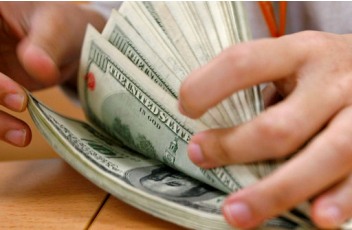Sudan renews calls for debt relief
September 3, 2014 (KHARTOUM) – Sudan’s first vice-president, Bakri Hassan Saleh, has urged the International Monetary Fund (IMF), World Bank (WB) and other international institutions to intervene to find a solution to Sudan’s debt problems, as well as those of other African countries.
 Saleh warned that any delay in ending the debt burden on Sudanese citizens is worse than justifying it, and that the cost to the poor is heavier than their ability to endure it.
Saleh warned that any delay in ending the debt burden on Sudanese citizens is worse than justifying it, and that the cost to the poor is heavier than their ability to endure it.
He also urged African countries to open their borders and markets so that inter-African trade can flourish.
According to latest IMF reports, Sudan’s external debt stood at approximately $45 billion in 2013 from $39.5 billion in 2010.
The first vice-president, who addressed the second meeting of the group of African ministers of finance and governors of Central Banks accredited at the IMF and WB, asserted that the spread of he Ebola epidemic in West Africa confirms that development in the African continent is still facing obstacles, and expressed hope that the affected states could overcome this in the near future.
He noted that the national dialogue initiative launched by president Omer Hassan al-Bashir last January is moving in the right direction and expressed optimism that positive results can be achieved in the form of national consensus in Sudan, especially since the internal dialogue is going on with the participation of all political forces and civil society organisations.
The Sudanese finance minister Badr al-Din Mahmoud urged his African counterparts and bank governors to determine development priorities that contribute to the fight against poverty and reduce unemployment in Africa.
Mahmoud pointed to the important role of the caucus meeting to discuss pushing development processes in the continent with the help of international financial institutions, especially since Africa is witnessing rapid economic growth and steady improvement in agricultural production.
He called on participants to discuss Sudan’s debt and countries which did not benefit from Heavily Indebted Poor Countries (HIPC) initiative and to press international financial institutions and the international community alike to apply only technical requirements to offer debt relief to African countries away from the political agenda to achieve justice.
Around three quarters of Sudan’s $40 billion plus external debt is owed to the Paris Club of creditor nations and other non-member states. The remaining balance is equally divided between commercial banks as well as international and regional financial bodies.
Last year, an IMF official said that it will be near impossible for Sudan to secure debt relief even if it satisfied technical and economic requirements.
“I’m not saying this is impossible but it is difficult because it is linked to political issues which requires a public relations effort with member countries,” IMF’s deputy director of the Middle East and Central Asia department, Edward Gemayel, said during a visit to Khartoum.
He said that any debt relief deal with Sudan would require the unanimous consent of all 55 countries in Paris Club which he suggested would be improbable.
Khartoum and Juba have agreed to work jointly to seek debt relief from creditors and if that fails will sit down to see how it can be divided.
(ST)
